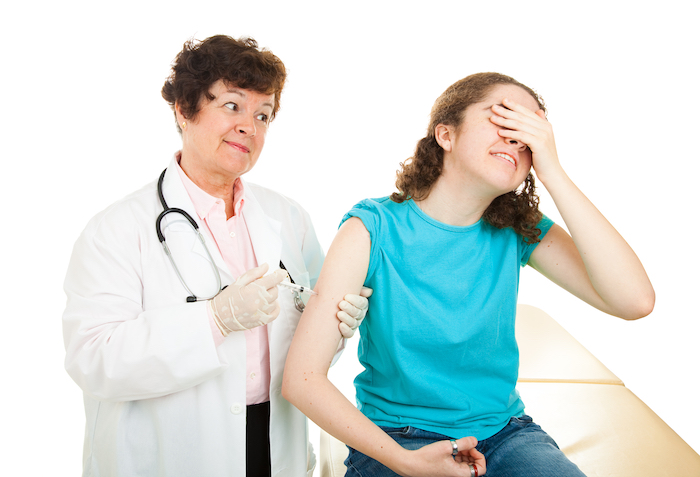TRENDING
In the News
Will we get a COVID-19 vaccine by the end of 2020?

It's no secret that the outbreak of Covid-19 has drastically changed our lives and dominated the media. With no end in sight, it has become abundantly clear that planning for the unknown is crucial to living through the pandemic. The answer? So far, it seems to be the development of a vaccine for the coronavirus.
Many are wondering how the potential vaccine for the disease will affect its spread. Major science corporations everywhere are working tirelessly to develop and test vaccinations for Covid-19, but where are they in the process now?
The New York Times reported that there are 32 vaccines in human trials and more than 135 vaccines that have yet to make it to the human trial stage. There are, of course, a number of stages that a vaccine must pass through before it is approved for mass use in the medical field. In order to ensure that the medication is as safe as possible and will not cause negative health effects upon patients who receive it, a vaccine must be tested on populations of animals as well as humans for extended periods of time.
As of now, two vaccines have been approved for early or limited use. The search for a Covid-19 vaccine has been complicated, but there does seem to be hope from the scientific community that the next year could bring an effective vaccine for the virus.
The National Institute of Health is now reporting that mRNA-1273, a vaccine developed in conjunction with Massachusetts biotechnology company Moderna, has reached Phase III trials. If these trials are successful, the next step is approval for this particular vaccine before it is circulated throughout specified parts of the population. The trial is being run by a team, known as the NIH Coronavirus Prevention Network, specifically chosen to work toward a vaccine and hopes to achieve its goal of distributing a safe vaccine to Americans, ideally, by early next year.
Francis Collins, director of the National Institute of Health, spoke out via webinar on July 22nd according to U.S. News and World Report, saying, "If we can hang in there and try to save as many lives as possible by good public health measures and good medical care, we should be the end of this calendar year have a very good chance of having vaccines that can start to be distributed to the most valuable people."
Meanwhile, across the pond, a team of researchers at the University of Oxford has teamed up with AstraZeneca, a prominent pharmaceutical company, to work on the development of another vaccine.
According to Bloomberg Businessweek, Sarah Gilbert, the leader of Oxford's vaccine research team has voiced hope that the team will know whether or not the vaccine is effective by September. She has also expressed that she believes the vaccine will have an, "80% probability of being effective in stopping people who are exposed to the novel coronavirus from developing Covid-19."
But that doesn't mean there will be any fast-tracking to get this vaccine to the public. On August 24, AstraZeneca said there have not yet been conversations with the Trump administration about authorizing emergency distribution of the vaccine in progress.
“It would be premature to speculate on that possibility,” AstraZeneca said in a statement to Politico.
Once a vaccine has passed through all of the necessary trials for safety and efficacy and becomes available to the public, it will be crucial that *everyone* who has access to a vaccine gets one. A vaccine may not only help to protect you from contracting the virus and developing an illness, but it also helps to prevent the spread of the virus to everyone around you.
When the opportunity arises for you to get vaccinated, you can trust that the vaccine will be safe as all vaccines have to pass through rigorous trials and meet strict health standards set by the FDA.
Don't trust us? Take it from Bill Nye.... or the U.S. Department of Health & Human Services.
Overall, no promises have been made that vaccines will be ready for the public by December, since unexpected complications may arise at any point in the testing process to approval. However, the future is looking optimistic with numerous companies and organizations working tirelessly to develop a safe dose of medication that will slow the virus's spread.
For more information about the status of COVID-19 vaccination testing, visit the National Institute of Health website.
POSTED IN health
check these out!
you might like these
-
 EXCLUSIVE! Freya Skye is a whole holiday mood
EXCLUSIVE! Freya Skye is a whole holiday mood
-
 Check out the new February/March issue of Girls' Life starring Pressley Hosbach!
Check out the new February/March issue of Girls' Life starring Pressley Hosbach!
-
 Triple Charm just dropped their newest EP, Undercover in Love (and we're adding it our V Day playlists rn)
Triple Charm just dropped their newest EP, Undercover in Love (and we're adding it our V Day playlists rn)
-
 EXCLUSIVE! Star Wars: Skeleton Crew star Kyriana Kratter is out of this galaxy
EXCLUSIVE! Star Wars: Skeleton Crew star Kyriana Kratter is out of this galaxy

 become a contributor
become a contributor


















